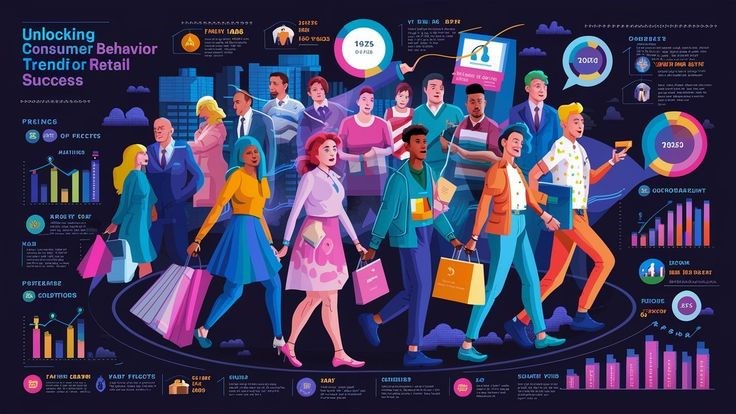The ecommerce is taking the market to a newer phase and the changes are altering the aspects of consumer buying behaviour. Other factors that are affecting the customers’ decision making include AI- powered personalization, sustainability, social commerce, and immersion, as well as privacy issues. All these changes must be made to increase consumer attention and loyalty from the companies’ side which is a must for any business. Successfully identifying these trends enables the brands in shaping the strategies to reflect the current expectations of the consumers in the marketplace.
Artificial intelligence has more and more appeared in people’s lives and consumer engagement is not an exception. Employers employ AI to monitor and even predict behaviors and progress to provide buyers with recommendations regarding goods and services. From recommending suitable products to adapting the prices based on customer interactions, AI is that the shopping experience needed to increase satisfaction and brand loyalty. As the role of relevance in cases of consumer interactions increases, those businesses which employ the use of AI have an added advantage and thus, the increased uptake and sales.
Another important concept that is driving commerce through consumerism is sustainability. Consumers are not only looking for eco-conscious and sustainability solutions but also brands that use ethical sourcing and emphasize on it. It is therefore evident that by implementing sustainable practices in their operations, organizations would receive a boost in customer allegiance. Purchasers invest their time and energy on the environmental responsibilities companies show before they could purchase from them, thus forcing companies to become environmentally friendly to uphold both the social responsibility aspect and the needs of the environment in the market.

Social commerce therefore brings a revolution in ordinary buying procedures by allowing customers to buy commodities through social networks. Instagram and TikTok now offer integrated shopping facilities that allow customers to make purchases with easy clicks without leaving the platform, and Influencer marketing increases consumer confidence. The promotion through influencers makes consumers have confidence in these brands and therefore social commerce brands benefit from it. It builds up the number of consumers and customer loyalty through entertaining and interpersonal online interface.
Self-awareness in data protection also shifts client tendencies. As consumers become increasingly wary of their privacy and misuse of their information, demands for disclosure of data collection practices are on the rise. That is why, the companies which have clear and firm privacy statements and secure methods of payment can earn the people’s confidence. With an understanding that security is a critical aspect in the new digital commerce, any brand that acknowledges the privacy rights of customers and is transparent about such will be trusted and followed for long-term.
Conclusion
Consumer behavior change is therefore very crucial in the new digital economy hence the need to incorporate the changes in business. Personalization, sustainability, social criterions, digital privacy aspects, and changes by artificial intelligence are the new norms for shopping experiences. If a particular brand achieves the mentioned trend factors, it establishes brand equity, engagement among the targeted customers, and brand loyalty. To sustain competitive advantage, business should advance relevant approaches in the market, enhance consumer centricity and make proper utilization of innovation.